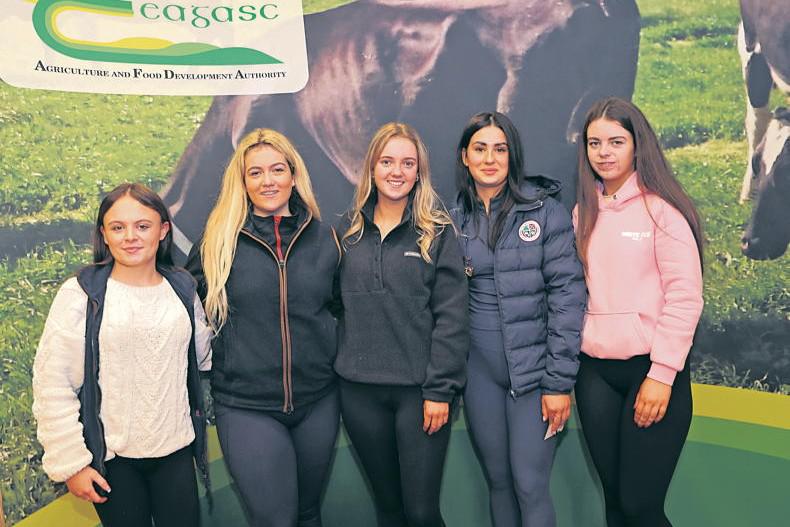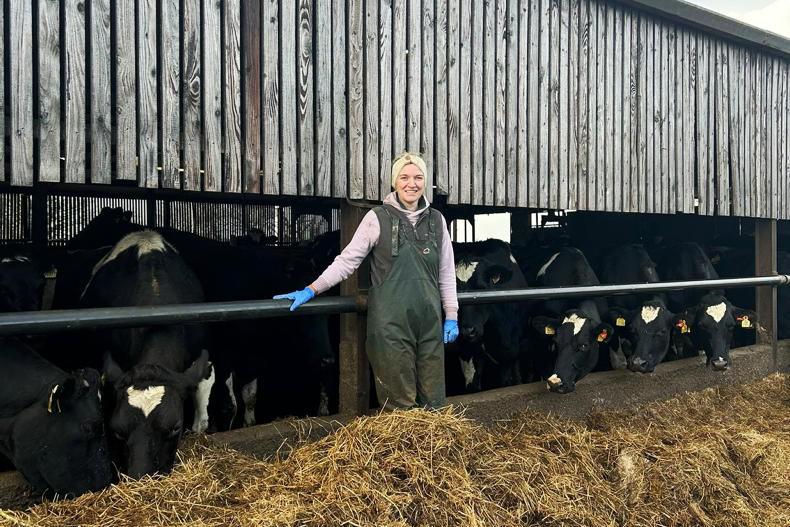Have you ever heard of student mobility? For anyone who hasn’t heard of the term (including myself before now), it is probably because you carried out education in your own country. For many students in Ireland, it poses a real problem when hoping to attend a third-level institution on the other side of the border between Northern Ireland and the Republic, or in a different country.
Student mobility refers to the movement of students from one learning institution to another, whether domestically or internationally.
The Economic and Social Research Institute (ESRI), in partnership with the Shared Island Unit in the Department of the Taoiseach, published new research in September 2023 on undergraduate student mobility between Ireland, Northern Ireland and Britain.
Issues affecting students
According to Dr Emer Smyth, co-author of the report and research professor with the Social Research Division in ESRI, the main need for this research was the relatively low level of cross-border student flows.
“There has been a fall-off in the numbers of students going from Ireland to Northern Ireland over the last decade or so, and a slight rise in the reverse direction,” she says.
Through administrative data and stakeholder interviews, the findings of the report show that few students move between Ireland and Northern Ireland for their education. This is due to a variation in the rules for getting into universities, the money it costs to study, and in Northern Ireland, the cap on university places available.
“Current higher education entry requirements in Ireland appear to disadvantage students from Northern Ireland,” explains Emer. “An adjustment of the points equivalences would likely make studying in Ireland a more realistic option for those from Northern Ireland. Although only one barrier to mobility, a change would have an important symbolic value in being seen as welcoming to students from Northern Ireland.”
Policy implications
There is huge value in mobility for students themselves, for higher education institutions and for enhancing cross-border cooperation.
School-based guidance could provide greater awareness of educational options in other countries to help students understand different entry requirements and application processes.
It has been suggested that there is a case to re-examine CAO point equivalences for A-levels, given the very small group of Northern Ireland candidates who take four A-levels, and to look at modern foreign language requirements. This is because there is a lower take-up of modern foreign languages in Northern Ireland.
“The assumption that students take four A-levels when only a handful do is a major concern,” says Emer. “However, language requirements also impact.”
Financial supports are in place for students in both jurisdictions, but there is a broader issue regarding which supports cover the costs of participation which needs to be addressed.
Barriers to student mobility
There are many factors that come into students making decisions about where to study - particularly now, with the rising costs of living and current accommodation shortages.
The main barriers when it comes to cross-border student mobility are guidance, entry requirements and financial supports.
“The main barriers centre on guidance (the need for more information for students in both jurisdictions on course options and entry routes), the equivalences between A-levels and grades for CAO entry, the foreign language requirement for many courses in Ireland and living costs or costs of accommodation,” explains Emer.
The Irish Universities Ireland are currently working on an impact plan to allow more cross-border student mobility.

AoifE Wheelan, Co. Limerick . Student studying in Northern Ireland.
Aoife Whelan, Co Limerick
“My name is Aoife Whelan and I recently moved to Northern Ireland for university. I’m in my first year studying Pharmacy at the University of Ulster in Coleraine in Derry.
“I decided at the beginning of 6th year in Leaving Cert to research my options outside of the Republic of Ireland for university and Ulster appealed to me from the beginning.
“Ulster University in Coleraine is in the countryside. The application process is thorough and requires a personal statement and interview, but is by no means inaccessible. Naturally, you do have certain grade requirements to achieve in your leaving cert as you would have to for the Republic of Ireland.
“I would definitely recommend to Irish students to look outside the Republic at all their options. There are so many benefits and it’s a great experience that really prepares you for life. Accommodation is also way more accessible up here. On campus there’s a sufficient amount of accommodation for all first-year students, which really takes the stress out of moving away. I’ve had a great time so far and really recommend to all.”
Emer Nic Roibín, Co Antrim
“Im from Belfast and I’m in my 3rd year of Medicinal Chemistry in the University of Galway. Choosing to apply for university down south meant having to achieve top grades in my A levels.
“The conversion of A level grades to Leaving Cert points is very unfair and not a true representation of our grades. It’s made me realise how much we need one system of applying to university on this island.”
Main findings of the report
In the report ‘Institutional barriers limit cross-border student mobility’ published by the ESRI in September 2023 the following findings were outlined: The levels of cross-border mobility are relatively low. In 2020/21, 1,170 students from Ireland went to study in Northern Ireland. Similarly, only 1,255 students from Northern Ireland attended a higher education institution in Ireland.
More students from Ireland go to study in the rest of the UK than in Northern Ireland, with numbers staying stable at just over 4,000 each year.
There is a relatively large number of students from Northern Ireland that go to study in the rest of the UK (13,685 in 2020/21). This reflects high levels of competition for places.
Students from Northern Ireland can apply through the Central Applications Office (CAO) process. However, applicants need to take four A-levels to achieve maximum points and only a handful of students in Northern Ireland do this.
The language requirement for many courses limits access for students from Northern Ireland where smaller numbers take a foreign language at A- or GCSE-level compared to the number of Leaving Certificate students.
Only a small number of applicants from Northern Ireland or Britain make it all the way through to being offered and accepting a place in Irish higher education institutions.
The decision to study elsewhere reflects the complex interaction of tuition/registration fees, financial support and other living costs.
Read more
Agri careers: ploughing through issues in the sector
Young people should be able to build in rural Ireland - O'Brien
Have you ever heard of student mobility? For anyone who hasn’t heard of the term (including myself before now), it is probably because you carried out education in your own country. For many students in Ireland, it poses a real problem when hoping to attend a third-level institution on the other side of the border between Northern Ireland and the Republic, or in a different country.
Student mobility refers to the movement of students from one learning institution to another, whether domestically or internationally.
The Economic and Social Research Institute (ESRI), in partnership with the Shared Island Unit in the Department of the Taoiseach, published new research in September 2023 on undergraduate student mobility between Ireland, Northern Ireland and Britain.
Issues affecting students
According to Dr Emer Smyth, co-author of the report and research professor with the Social Research Division in ESRI, the main need for this research was the relatively low level of cross-border student flows.
“There has been a fall-off in the numbers of students going from Ireland to Northern Ireland over the last decade or so, and a slight rise in the reverse direction,” she says.
Through administrative data and stakeholder interviews, the findings of the report show that few students move between Ireland and Northern Ireland for their education. This is due to a variation in the rules for getting into universities, the money it costs to study, and in Northern Ireland, the cap on university places available.
“Current higher education entry requirements in Ireland appear to disadvantage students from Northern Ireland,” explains Emer. “An adjustment of the points equivalences would likely make studying in Ireland a more realistic option for those from Northern Ireland. Although only one barrier to mobility, a change would have an important symbolic value in being seen as welcoming to students from Northern Ireland.”
Policy implications
There is huge value in mobility for students themselves, for higher education institutions and for enhancing cross-border cooperation.
School-based guidance could provide greater awareness of educational options in other countries to help students understand different entry requirements and application processes.
It has been suggested that there is a case to re-examine CAO point equivalences for A-levels, given the very small group of Northern Ireland candidates who take four A-levels, and to look at modern foreign language requirements. This is because there is a lower take-up of modern foreign languages in Northern Ireland.
“The assumption that students take four A-levels when only a handful do is a major concern,” says Emer. “However, language requirements also impact.”
Financial supports are in place for students in both jurisdictions, but there is a broader issue regarding which supports cover the costs of participation which needs to be addressed.
Barriers to student mobility
There are many factors that come into students making decisions about where to study - particularly now, with the rising costs of living and current accommodation shortages.
The main barriers when it comes to cross-border student mobility are guidance, entry requirements and financial supports.
“The main barriers centre on guidance (the need for more information for students in both jurisdictions on course options and entry routes), the equivalences between A-levels and grades for CAO entry, the foreign language requirement for many courses in Ireland and living costs or costs of accommodation,” explains Emer.
The Irish Universities Ireland are currently working on an impact plan to allow more cross-border student mobility.

AoifE Wheelan, Co. Limerick . Student studying in Northern Ireland.
Aoife Whelan, Co Limerick
“My name is Aoife Whelan and I recently moved to Northern Ireland for university. I’m in my first year studying Pharmacy at the University of Ulster in Coleraine in Derry.
“I decided at the beginning of 6th year in Leaving Cert to research my options outside of the Republic of Ireland for university and Ulster appealed to me from the beginning.
“Ulster University in Coleraine is in the countryside. The application process is thorough and requires a personal statement and interview, but is by no means inaccessible. Naturally, you do have certain grade requirements to achieve in your leaving cert as you would have to for the Republic of Ireland.
“I would definitely recommend to Irish students to look outside the Republic at all their options. There are so many benefits and it’s a great experience that really prepares you for life. Accommodation is also way more accessible up here. On campus there’s a sufficient amount of accommodation for all first-year students, which really takes the stress out of moving away. I’ve had a great time so far and really recommend to all.”
Emer Nic Roibín, Co Antrim
“Im from Belfast and I’m in my 3rd year of Medicinal Chemistry in the University of Galway. Choosing to apply for university down south meant having to achieve top grades in my A levels.
“The conversion of A level grades to Leaving Cert points is very unfair and not a true representation of our grades. It’s made me realise how much we need one system of applying to university on this island.”
Main findings of the report
In the report ‘Institutional barriers limit cross-border student mobility’ published by the ESRI in September 2023 the following findings were outlined: The levels of cross-border mobility are relatively low. In 2020/21, 1,170 students from Ireland went to study in Northern Ireland. Similarly, only 1,255 students from Northern Ireland attended a higher education institution in Ireland.
More students from Ireland go to study in the rest of the UK than in Northern Ireland, with numbers staying stable at just over 4,000 each year.
There is a relatively large number of students from Northern Ireland that go to study in the rest of the UK (13,685 in 2020/21). This reflects high levels of competition for places.
Students from Northern Ireland can apply through the Central Applications Office (CAO) process. However, applicants need to take four A-levels to achieve maximum points and only a handful of students in Northern Ireland do this.
The language requirement for many courses limits access for students from Northern Ireland where smaller numbers take a foreign language at A- or GCSE-level compared to the number of Leaving Certificate students.
Only a small number of applicants from Northern Ireland or Britain make it all the way through to being offered and accepting a place in Irish higher education institutions.
The decision to study elsewhere reflects the complex interaction of tuition/registration fees, financial support and other living costs.
Read more
Agri careers: ploughing through issues in the sector
Young people should be able to build in rural Ireland - O'Brien










SHARING OPTIONS